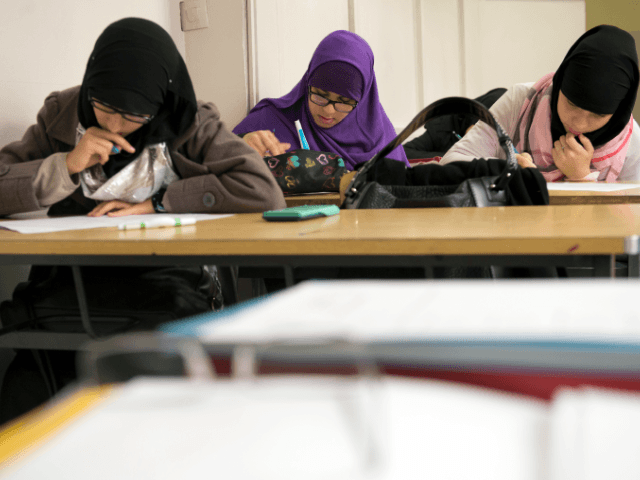A senior German educator has called for all pupils in the country to be forced to study Arabic until they graduate in the interests of the multicultural state.
Professor of Computer Science Thomas Strothotte and President of a private Hamburg university has argued that German children should be forced to learn Arabic alongside German so they would better understand the country’s 1.5 million new migrants and make them feel more welcome. He said it would help Germany become “a country of immigration, and a multilingual society”.
Germany is discussing frankly the problems of integrating over one million migrants that have arrived over the past year, especially in the light of the brutal sex attacks that have been blamed by some on a clash of cultures.
Some have called for newly arrived migrants to be taught about European norms, culture, and language, but professor Strothotte has suggested teaching Germans Arabic instead will “strengthen integration”, reports Die Welt.
Prof. Strothotte predicts that the continued migrant invasion presents an opportunity for Germany’s youth to access the emerging Arabic market and justifies his call for required Arabic courses by saying that the next few decades will see a “profound transformation” of Europe and the Middle East in which he believes the Arabic language will be vitally important for business and cultural integration.
He claims the move will put Germany forward as an “economic, cultural, and political partner” for the Middle East.
Learning a foreign language is already compulsory in German schools, but students have a choice what they chose to take besides German. Presently, most choose English.
Jenovan Krishnan of the Christian Democrats party was critical of the suggestion however, stating: “This proposal adds fuel in an already heated debate. We must not force German students to learn Arabic as a compulsory subject and it would completely send the wrong signal. It sounds as if we are expected to accept the culture of the people who come to our country and seek protection here. We should be primarily concerned that refugee children from the Middle East learn German in order to integrate.”
Other European schools have taken an unofficially proactive stance to integration.
Breitbart London reported on one school in Austria last week which had sent German pupils home with a hymn to learn for homework, with referenced to God replaced with “Allah”. Remarkably, in making an apology for the mistake a spokesman for the school admitted segregated homework was the norm for the school and Muslim pupils were routinely given different work than their native German classmates.
In Northern Italy at the end of last year another school took a different approach to multiculturalism, and banned Christmas altogether, promising a January “winter concert” instead. The school had already taken down its crucifixes which are required by Italian law to be displayed in every school.
The headmaster lost his job over the decision but told press he had been left in a position by the diverse cultural make-up of the school where he was bound to be damned whatever he did.
Marco Parma of the Istituto Garofani di Rozzano school, who stood down in November after even the Italian Prime Minister came forward to criticise him, said: “In a multi-ethnic environment, it causes problems… last year we had a Christmas concert and some parents insisted on having carols. The Muslim children didn’t sing, they just stood there, absolutely rigid.
“It is not nice watching a child not singing, or worse, being called down from the stage by their parents”.
The former headmaster even said to allow Christian carols at his school again would be a “provocation” and “dangerous”.
Prof. Strothotte’s comments echo those from 2013 from the German Chamber of Commerce deputy Christian Wiesenhutter. Mr. Wiesenhutter predicted the importance of the Arabic language, at least for business purposes, when he said, “We must finally acknowledge that Arabic is a world language, and we have to keep pace,” recommending schools start teaching the language.
Public broadcasters in Germany are also seizing the opportunity to start Arabic versions of their radio stations with ARD creating “DW Arabia” which is a 24-hour news channel broadcast in Arabic that ARD chair Karole Wille said was “an important signal” while the country was going through a “difficult phase.”

COMMENTS
Please let us know if you're having issues with commenting.